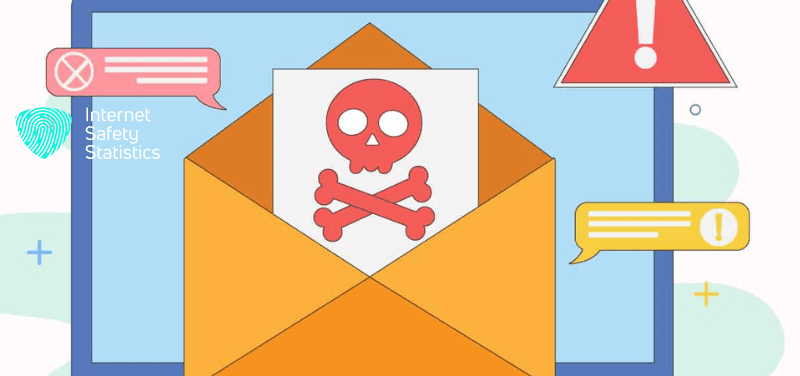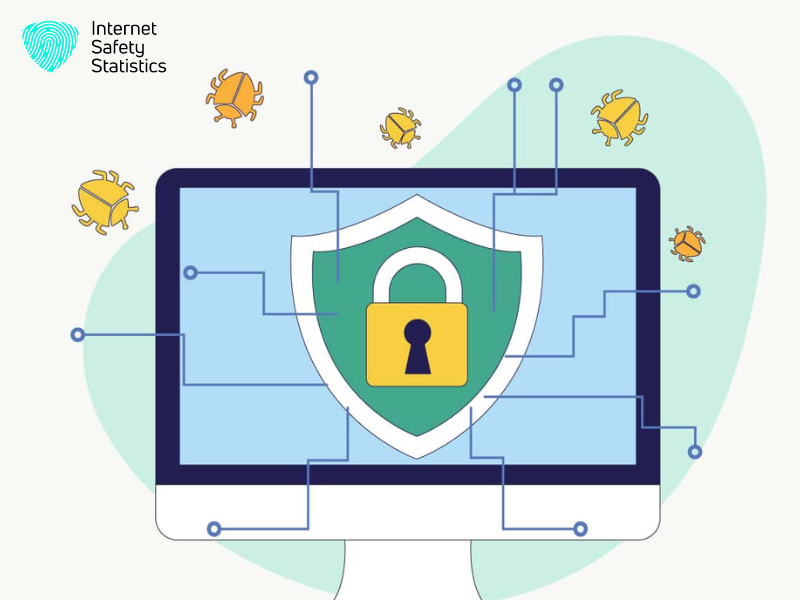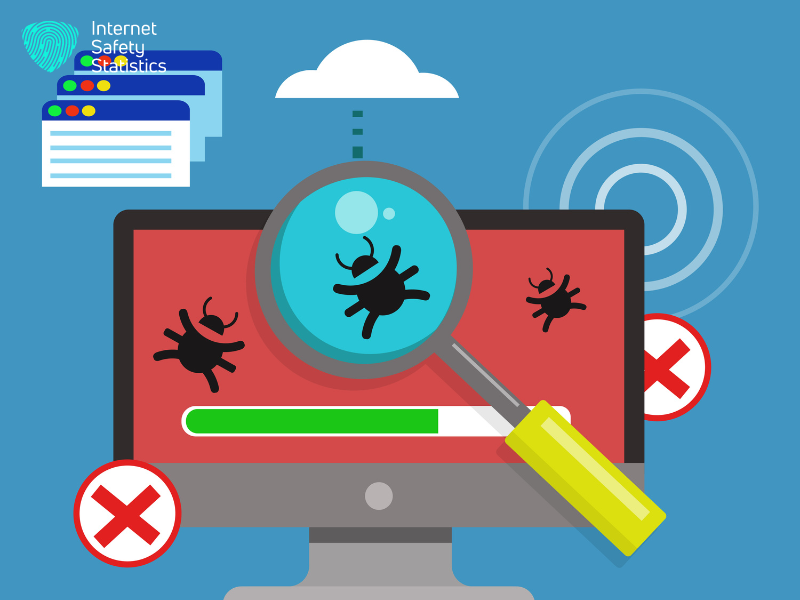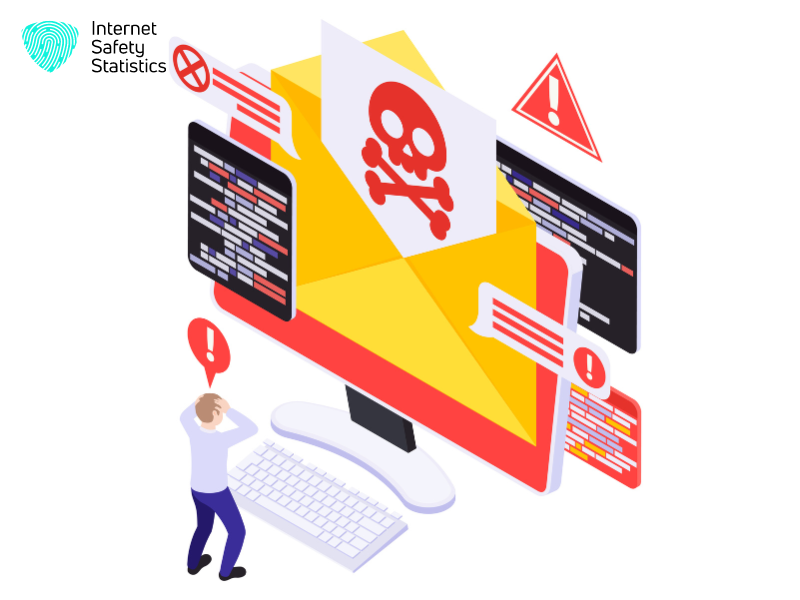
In our digital world, computer viruses are like sneaky codes that can cause problems. They’re not just simple bugs; they’re designed by bad people to spread and mess up our computers. These digital threats have gotten smarter over time and can now harm important things, like our data and even how our whole interconnected world works.
As we use more technology, these viruses can cause bigger issues, disrupt important stuff, and cost a lot of money. It’s not just a small problem; it can affect individuals, businesses, and even entire countries. So, it’s crucial to understand these computer viruses, not just out of curiosity but to protect ourselves. We need to learn how they work, what they look like, and how to stop them from causing trouble. This way, we can keep our digital world safe and sound.
Understanding Computer Viruses

In the realm of computers, a “computer virus” is like a digital troublemaker, a tiny piece of code that causes mischief inside our devices. Unlike the viruses that make us sick, computer viruses are all about spreading and causing problems in the digital world. They have been around for a while, originating as experimental bits of code that evolved into sophisticated tools for cyber mischief.
Definition and Origin
The term “virus” is used because, like biological viruses, these digital counterparts can replicate and spread from one computer to another, making the issue more complex and widespread. The origin of computer viruses can be traced back to curious minds testing the limits of computer systems, but over time, they transformed into a serious concern as cybercriminals exploited their potential to disrupt, steal information, and create chaos in the digital landscape. Understanding the definition and origin of computer viruses is the first step in navigating the digital world with caution and vigilance.
Computer viruses are essentially lines of code that, much like a chain reaction, replicate themselves within a computer system, often with malicious intent. Early on, they were more like digital pranks, but as technology advanced, so did the sophistication of these digital troublemakers. The origin of computer viruses can be linked to the era when personal computing began to flourish, with curious minds exploring the capabilities and vulnerabilities of emerging technologies.
Initially, they were created for experimental purposes or as proofs of concept to showcase potential weaknesses in computer systems. However, the evolution of these digital threats took a darker turn when cybercriminals realised the havoc they could wreak. Today, computer viruses have become a significant challenge in the cybersecurity landscape, emphasising the importance of understanding their origins to develop effective strategies for prevention and protection in our interconnected digital world.
Structure and Characteristics
The structure and characteristics of computer viruses are defined by their code-based nature and their sophisticated replication and propagation mechanisms.
1. Code-Based Nature
At the heart of every computer virus lies its code-based nature. Unlike conventional programmes designed for specific tasks, viruses embed their malicious instructions within lines of code. This code is crafted to exploit vulnerabilities in computer systems, often utilising stealthy tactics to avoid detection. The code-based nature of viruses allows them to integrate themselves into legitimate programmes or files, camouflaging their true intent until activated. This deceptive quality is a key feature, enabling viruses to execute their instructions and compromise the normal operation of a computer system. As technology evolves, so does the complexity of the code, making it increasingly challenging for antivirus software and cybersecurity measures to stay one step ahead.
2. Replication and Propagation Mechanisms
A defining characteristic of computer viruses is their ability to replicate and propagate, akin to a biological contagion. Once the virus infiltrates a system, it initiates a process of duplication, creating copies of itself and often attaching to other files or programmes. This replication mechanism enables viruses to spread rapidly, reaching different parts of the infected computer or even extending their reach to other interconnected devices. The triggers for replication can vary, with some viruses activating upon specific conditions or events.
The propagation mechanisms employed by viruses exploit common vectors such as email attachments, infected websites, or removable media, facilitating their movement from one system to another. Understanding these mechanisms is crucial for developing effective cybersecurity strategies to halt the spread of viruses and protect digital ecosystems from their detrimental impact. In essence, the code-based nature coupled with the replication and propagation mechanisms makes computer viruses a formidable challenge in the ongoing battle for digital security.
Common Types of Computer Viruses
The realm of computer viruses is diverse, encompassing malware, spyware, adware, and rootkits. Each type carries unique characteristics, with Trojans, worms, and ransomware emerging as prominent representatives of the digital threat landscape. Understanding these distinctions is pivotal for devising effective strategies against their infiltration.
1. Malware
Malware, short for malicious software, is a term encompassing harmful software designed to exploit or damage computer systems. Malware poses serious risks to digital information and cybersecurity, requiring a comprehensive approach to mitigation. Strategies include employing antivirus software, ensuring regular updates, and educating users on safe computing practices. As the digital landscape evolves, addressing the diverse forms of malware remains essential for maintaining a secure digital environment.
Trojan Horses
Trojan Horses are deceptive entities that disguise themselves as legitimate programmes but, once executed, unleash malicious activities. Unlike viruses, they don’t replicate on their own but create a gateway for other malicious software to enter the system unnoticed.
Worms
Worms are self-replicating viruses that can spread independently across networks and devices. They exploit vulnerabilities in computer systems, replicating and sending copies of themselves to other computers without requiring any user action.
Ransomware
Ransomware encrypts a user’s files, rendering them inaccessible until a ransom is paid. This type of malware poses a severe threat, often targeting individuals, businesses, or even critical infrastructure, demanding payment in exchange for restoring access to the encrypted data.
2. Spyware
Spyware is designed to stealthily observe and gather information about a user’s activities without their knowledge. This type of virus can capture sensitive data such as passwords, browsing habits, and personal information, posing significant privacy concerns.
3. Adware
Adware inundates users with unwanted advertisements, often redirecting browsers or causing pop-ups. While not as malicious as some other types, adware can significantly disrupt the user experience and compromise system performance.
4. Rootkits
Rootkits are particularly insidious as they conceal their presence within the operating system, making them challenging to detect. These viruses often provide unauthorised access to a computer system, allowing cybercriminals to control or manipulate the device undetected.
Understanding these common types of computer viruses is crucial for individuals and businesses alike. Each type poses unique challenges, necessitating tailored cybersecurity measures to mitigate the risks associated with their presence in the digital realm. As the digital landscape continues to evolve, vigilance and proactive cybersecurity practices become essential in safeguarding against the diverse threats posed by these malicious entities.
How Computer Viruses Spread

Understanding how computer viruses spread is paramount in implementing effective cybersecurity measures. The methods of transmission encompass various vectors, often exploiting human behaviour and technological vulnerabilities.
Methods of Transmission
The methods through which computer viruses propagate encompass a spectrum of tactics, exploiting both technological vulnerabilities and human behaviours. Individuals and organisations seeking to fortify their digital defences against the ever-present threat of malware need to understand these transmission methods fully.
Email Attachments
One of the most common methods viruses often spread through is malicious email attachments. Cybercriminals craft convincing emails, enticing recipients to open attachments that, once executed, unleash the virus into the system. Vigilance and cautious handling of unexpected email attachments are crucial in preventing such infections.
Infected Websites
Visiting compromised or malicious websites can expose users to viruses. Cybercriminals inject malicious code into these websites, exploiting vulnerabilities in web browsers to initiate downloads or execute scripts without the user’s knowledge. Regularly updating browsers and employing reputable antivirus software can help mitigate this risk.
Removable Media
Viruses can hitch a ride on removable media such as USB drives or external hard disks. Plugging an infected device into a computer can lead to the automatic execution of malicious code, spreading the virus to the host system. Scanning removable media for malware before use is a crucial preventive measure.
Social Engineering Tactics
Social engineering tactics play a pivotal role in the transmission of computer viruses, relying on psychological manipulation rather than technical exploits. Cybercriminals adeptly exploit human trust and behaviour to trick individuals into revealing sensitive information or unwittingly allowing malware into their systems. Understanding these tactics is crucial for enhancing cybersecurity awareness and resilience.
Phishing
Phishing involves the use of deceptive emails, messages, or websites to trick individuals into revealing sensitive information, such as usernames and passwords. Often disguised as trustworthy entities, phishing attacks manipulate human trust to gain access to personal or corporate information. Education on recognising phishing attempts and the use of email filters are essential defences.
Deceptive Downloads
Cybercriminals employ deceptive download tactics to trick users into downloading and installing malicious software. This can occur through misleading advertisements, fake software updates, or deceptive links. Verifying the legitimacy of downloads, using official sources, and maintaining up-to-date security software are vital measures to avoid falling victim to such tactics.
Impact on Systems and Data

The impact of computer viruses on systems and data is far-reaching, encompassing disruptions to normal operations, data loss and corruption, financial implications, and privacy concerns. Understanding the multifaceted consequences of a virus incursion sheds light on the importance of robust cybersecurity measures.
Disruption of Normal Operations
Computer viruses have the capacity to disrupt the normal functioning of a system, leading to slowdowns, crashes, or even complete system failures. This interference with regular operations not only hampers productivity but can also result in significant downtime for businesses, leading to financial losses and a potential negative impact on reputation.
Data Loss and Corruption
Perhaps one of the most severe consequences is that computer viruses can lead to the loss or corruption of critical data. Whether through intentional actions such as ransomware attacks or inadvertent consequences of virus activity, the compromise of data can have profound implications for individuals and organisations. Recovering lost data may be challenging or impossible, depending on the nature of the virus and the effectiveness of backup strategies in place.
Financial Implications
The financial ramifications of a virus attack are substantial. Businesses may incur costs related to system repairs, data recovery efforts, and potential legal consequences. Moreover, ransomware attacks, where cybercriminals demand payment for the release of encrypted data, can impose direct financial burdens. Indirect costs, such as loss of revenue during downtime and expenses associated with implementing enhanced cybersecurity measures, further compound the financial impact.
Privacy Concerns
Computer viruses often compromise the privacy of individuals and organisations by gaining unauthorised access to sensitive information. This may include personal data, financial records, or proprietary business information. Privacy breaches can lead to identity theft, reputational damage, and legal repercussions. Protecting privacy becomes a paramount concern in the face of evolving cyber threats, emphasising the need for proactive cybersecurity measures.
Preventive Measures
Preventing the infiltration of computer viruses requires a multi-faceted approach, combining technological solutions and user behaviour best practices. The following preventive measures form a robust defence against the diverse array of digital threats.
Antivirus Software
Antivirus software stands as a critical component in the ongoing battle against computer viruses, offering a protective shield for systems and data. It serves as a first line of defence, employing various techniques to identify, neutralise, and eradicate malicious software threats. Understanding the key features of effective antivirus software is essential for individuals and organisations seeking to fortify their digital security.
1. Real-time Protection
Antivirus software equipped with real-time protection is a frontline defence mechanism. This feature actively scans files and programmes in real-time, identifying and neutralising potential threats before they can compromise the system. Real-time protection is instrumental in thwarting immediate virus incursions.
2. Regular Updates
Regularly updating antivirus software is imperative to ensure it remains effective against evolving threats. Cybercriminals continually develop new tactics, and updates to antivirus databases provide enhanced detection capabilities. Automated updates or scheduled checks guarantee that the software is equipped to combat the latest viruses.
Firewalls
Firewalls act as a barrier between a computer or network and potential external threats. Configured to filter incoming and outgoing network traffic, firewalls play a crucial role in blocking unauthorised access and preventing the spread of viruses. Utilising firewalls, whether at the hardware or software level, enhances overall network security.
Safe Browsing Habits
Encouraging safe browsing habits is an integral aspect of virus prevention. Users should be cautious when clicking on links, downloading files, or visiting websites. Avoiding suspicious websites and refraining from clicking on unfamiliar links in emails or messages minimises the risk of inadvertently introducing viruses into the system.
Email Security Protocols
Email remains a common vector for virus transmission. Implementing robust email security protocols involves using spam filters, verifying the legitimacy of email senders, and avoiding opening unexpected attachments or clicking on links in suspicious emails. Educating users about potential email threats and promoting a cautious approach significantly reduces the risk of falling victim to phishing or other malicious tactics.
What Is the Best Antivirus Software?
Selecting the best antivirus software is a crucial decision to ensure the security of your digital assets. The effectiveness of antivirus programmes can vary based on factors such as system impact, ease of use, intrusion level, protection, performance, and overall value. Here is a list of antivirus software that is widely regarded and recommended by experts:
- AhnLab V3 Internet Security
- Panda Global Protection
- Webroot SecureAnywhere Internet Security Complete
- Avira Free Antivirus
- Qihoo 360 Internet Security
- Lookout Security & Antivirus
- Malwarebytes Anti-Malware Premium
- Bullguard Internet Security
- F-Secure Safe
- Trend Micro Titanium Internet Security
- eScan Total Security Suite
- Kaspersky PURE 3.0 Total Security
- G Data TotalProtection
- Bitdefender Total Security
- Symantec Norton 360
These antivirus programmes have been assessed based on their ability to provide protection against a wide range of threats, their impact on system performance, user-friendliness, and value for money. It’s important to note that the effectiveness of antivirus software can depend on individual preferences and specific needs.
Evolving Threat Landscape
The evolving threat landscape in the realm of computer viruses is characterised by the continuous emergence of new types of viruses and the adaptive tactics employed by cybercriminals. As technology advances, so too do the methods and tools utilised by malicious actors, posing ever-increasing challenges to the field of cybersecurity.
Emergence of New Types of Viruses
The digital landscape is dynamic, witnessing the constant evolution of computer viruses. Cybercriminals, driven by financial gain, geopolitical motives, or even sheer mischief, continuously develop novel strains of malware. These may include sophisticated variants of existing viruses or entirely new types that exploit undiscovered vulnerabilities in software or human behaviour. The rise of polymorphic and metamorphic viruses, capable of changing their code to evade detection, exemplifies the adaptability of new virus types. Staying ahead of these emerging threats requires a proactive approach to cybersecurity, including regular updates to antivirus databases and ongoing research into evolving virus behaviours.
Adaptive Tactics Employed by Cybercriminals
Cybercriminals exhibit a high degree of adaptability in response to evolving cybersecurity measures. They employ a range of tactics to bypass defences, often leveraging social engineering techniques to exploit human vulnerabilities. Phishing attacks, for example, continually evolve in sophistication, making it challenging for users to discern fraudulent communications. Additionally, cybercriminals may exploit zero-day vulnerabilities —flaws in software that are unknown to the vendor— to launch targeted attacks before patches are developed. The use of encryption and anonymisation techniques by malicious actors further complicates the task of tracking and thwarting their activities. To counter these adaptive tactics, cybersecurity professionals must adopt a multi-layered defence strategy, combining technological solutions with user education and ongoing monitoring to detect and mitigate emerging threats.
The evolving threat of computer viruses necessitates a proactive and collective response from individuals and organisations. Understanding the origins, types, and impact of these digital threats is crucial in navigating the dynamic digital landscape. Implementing preventive measures, including robust cybersecurity practices, industry best practices, and collaborative efforts, is essential to thwart the ever-growing sophistication of cybercriminal tactics. The human element remains central to cybersecurity, underscoring the importance of ongoing user education and awareness. By fostering a united front against computer viruses through technological advancements, information sharing, and global initiatives, we can fortify our digital defences, ensuring a safer and more secure digital future.
